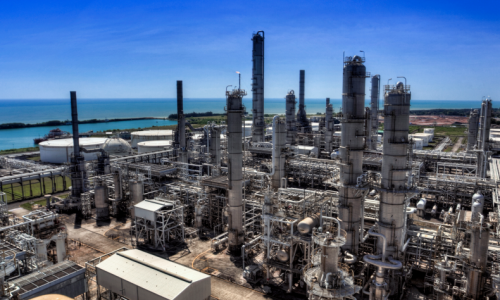Indonesia unicorn company Kopi Kenangan has planned to launch an IPO in the Indonesia Stock Exchange (IDX) although not in the foreseeable future. Instead, the company is focusing on global expansion as a corporate action before the IPO. CEO and Co-founder of Kopi Kenangan, Edward Tirtanata, said the company was in the process of opening new overseas outlets.
“Certainly we have a global vision and it is not only Malaysia but also other countries like Europe, the US, and the Middle East,” he said during the Indonesia PE-VC Summit by Dealstreet Asia in Jakarta on January 12, 2023.
Focusing on ASEAN market
For the time being, Tirtanata said his company would focus its expansion in Malaysia and another ASEAN country. Since October 2022, Kopi Kenangan opened its first outlet in Suria KLCC, Kuala Lumpur.
“Currently, our team is exploring the opportunity. There are many things to do such as seeking information on the legal process, location and building team. We have not decided on which countries that we will invest. We are preparing for the next 2 to 3 years to open outlets in several countries. It depends on the timeline. There are many difficult factors to decided on the deadline,” he pointed out.
Tirtanata said many of the company’s costumers are proud that Indonesia brand could go global. Even Minister of Tourism and Creative Economy Sandiaga Uno plans to visit Kopi Kenangan outlet in Kuala Lumpur.
“He opened our outlet in Malaysia and gave an online speech for us. We are very proud that Indonesia brand can represent and go global and open new market,” Tirtanata said.
As a young brand, Kopi Kenangan has the same strategy in the global market. The strategy includes grand and go and taken able. The experience shows that Kopi Kenangan is popular also in Malaysia with the majority ofrevenue come from milk coffee.
IPO target
To finance further global expansion, Tirtanata said the company would go public. In his opinion, the IPO is part of the natural evolution that become the company’s aspiration for the next 3 to 4 years.
“We have not set the timeline yet. We need to see the situation of the stock exchange, economic situation and out performance, and there are many factors. If we have already the timeline for the IPO, we will inform the public,” he explained.
He said Kopi Kenangan would not have enough fund if it did not raise the fund from the capital market. The expansion in Malaysia has been financed by the company’s internal capital. However, it would need more funds to expand in 10 more countries.
Current challenges
During the COVID-19 pandemic, Kopi Kenangan faced some challenges – just like any other businesses – including the absence of walk-in costumers. The government’s public activity restriction during the pandemic forced mall operators to close down, including food and beverages outlets.
Kopi Kenangan’s sales came from online buyers during the pandemic. Once the restriction was lifted, the opening of malls, hotels and offices have helped the company’s revenues to returned to the pre-pandemic rate.
Another challenge is inflation. The price of bottled coffees has increased in 2022. However, Kopi Kenangan managed to maintain its margin because the turnover from online sales increased.
“We continue to review the increase of the price not globally, but also from all stores of Kopi Kenangan. We started from city to city. We perceive that Indonesia is big country, the regional minimum wage is different between Central Java and Greater Jakarta Area. So we make segmentation of the price hike not only based on the regions and cities but also from the channel. Online selling is more expensive that offline or just same price,” Tirtanata explained.









